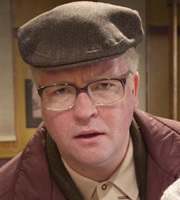- Welcome to Cook'd and Bomb'd.
-
 Taskmaster s17
by FeederFan500
Taskmaster s17
by FeederFan500
[Today at 06:27:24 AM] -
 Wrasslin' Talk: Punk out
by oggyraiding
Wrasslin' Talk: Punk out
by oggyraiding
[Today at 06:20:19 AM] -
 The Travails of Labour - The...
by Paul Calf
The Travails of Labour - The...
by Paul Calf
[Today at 06:13:46 AM] -
 Load of horses gone mental...
by kalowski
Load of horses gone mental...
by kalowski
[Today at 06:12:42 AM] -
 watching The Sopranos for...
by ishantbekeepingit
watching The Sopranos for...
by ishantbekeepingit
[Today at 05:43:23 AM] -
 The All New Comics Thread...
by 13 schoolyards
The All New Comics Thread...
by 13 schoolyards
[Today at 05:28:23 AM] -
 The origin of Metal
by Pink Gregory
The origin of Metal
by Pink Gregory
[Today at 05:18:33 AM] -
 Fallout 4 free update coming...
by Mobius
Fallout 4 free update coming...
by Mobius
[Today at 05:16:56 AM] -
 American words/phrases you...
by famethrowa
American words/phrases you...
by famethrowa
[Today at 04:49:14 AM] -
 Doctor Who - Series 14, part...
by jamiefairlie
Doctor Who - Series 14, part...
by jamiefairlie
[Today at 04:39:48 AM]
Members
 Total Members: 17,826
Total Members: 17,826 Latest: skinnylike
Latest: skinnylike
Stats
 Total Posts: 5,584,363
Total Posts: 5,584,363 Total Topics: 106,754
Total Topics: 106,754 Online Today: 1,132
Online Today: 1,132 Online Ever: 3,311
Online Ever: 3,311- (July 08, 2021, 03:14:41 AM)


